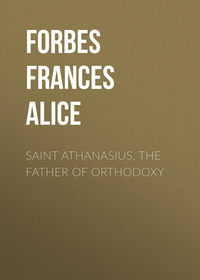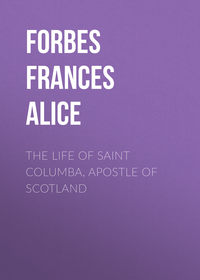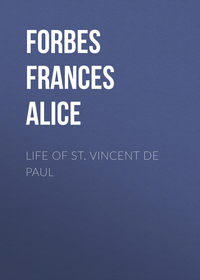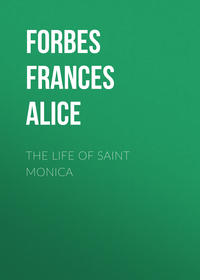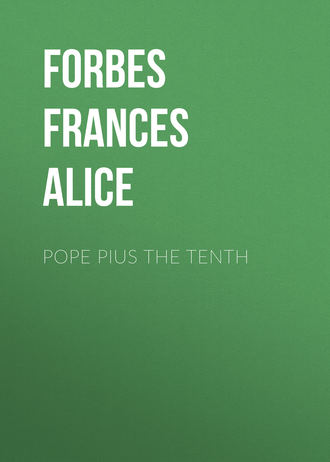 полная версия
полная версияPope Pius the Tenth
"One was not conscious of time and it was all unreal," wrote one who was present. "Suddenly the deep notes of St. Peter's great bell boomed out, tolling 'pro pontifice agonizzante,' and at that signal Exposition began in all the patriarchal basilicas, with special prayers. The hot scirocco, the buzz from the Piazza San Pietro far below, whispering prelates and attendants, the boom of the bell – how strange it all seemed; and behind everything the catastrophe of the present public situation and war."
So the hours of the afternoon wore on into the night. The pope could not speak, but he recognized those who approached him, received the clasp of their hands with an answering pressure, raised his own to bless them, and from time to time made slowly on his brow and breast a long sign of the cross. At a little after 1.15 a.m., in deepest peace and calm, Pius X passed away.
He died as he had lived, quietly and simply; and few strangers, had they seen the plain, austerely furnished bedroom where he lay, majestic in death, could have believed that this was the death-chamber of a pope. Opposite the bed, which was surrounded by four great candles, stood an altar, where from the small hours of the morning Mass succeeded Mass; two Noble Guard were on duty beside the dead pontiff. The grief felt for his loss was deep and universal; cardinals, prelates, servants, all sorts and conditions of men, wept openly as they went about their duties. Diplomats expressed in heartfelt accents to Cardinal Merry del Val their admiration, veneration and love for the saintly pope who had passed away. "The whitest soul in this blood-stained tempest-torn world has left us," wrote an Italian prelate to a friend. "The Holy Father has died of a broken heart," said another.
The body of the pope lay in state in the Sala del Trono and afterwards was carried to St. Peter's, where it was placed in the chapel of the Blessed Sacrament, raised aloft and visible to the crowd. A continuous stream of people passed through the basilica, getting thicker and thicker as the day went on. Pius X had asked that he might be buried in the crypt of St. Peter's, absolutely forbidding the embalming of his body. His wish was carried out on the 23rd of August.
"The will of the Holy Father," said one of the cardinals, "is the will of a saint." Opening with an invocation of the Blessed Trinity and an expression of confidence in the mercy of Almighty God, it continued thus: "I was born poor, I have lived poor, and I wish to die poor." A sum not exceeding £12 a month was left to his sisters, and 48s. a month to his valet, while a legacy of £400 was bequeathed to his nephews and nieces, subject to the approval of the next pope. The maintenance of 400 orphans, victims of the Messina earthquake of 1908 and undertaken by the Holy Father, was also provided for.
"Pius X has left his mark on the world," wrote Monsignor Benson in The Tablet of August 29th, "perhaps more than any pontiff of the last four centuries. That humble cry of sorrow, which, we are told, broke from him only a few days ago when he deplored his impotence to check the madness of Europe, indeed witnessed to the great historical lesson that those who reject the arbitration of Christ's Vicar and the elementary principles of Christian justice will surely reap – indeed are already reaping – the bitter fruits of disobedience; but along other lines he has done more than any predecessor of his since the days of that great schism to reconcile by love those who throw over authority; and the secret of it all lies in exactly that which he would be the last to recognize – namely, the personal holiness and devotion of his own character..
"It is a wonderful consolation to realize how, for the first time perhaps for centuries, the Shepherd of the flock has succeeded in making his voice heard, and a part, at least, of his message intelligible among the sheep that are not of his fold. Pontiff after pontiff has spoken that same message, and pontiff after pontiff has been, without the confines of his own flock, little more than a voice crying in the wilderness. Now, for the first time, partly no doubt through the breaking down of obstinate prejudice, but chiefly through the particular accents of the voice that spoke and the marvellous personality of the speaker, that message has become audible, and Pius X has succeeded where diplomacy and even sanctity of another complexion have failed. Men have recognized the transparent love of the Pastor where they have been deaf to the definitions of the Pontiff; they have at any rate paused to listen to the appeals of their Father, when they have turned away from the authority of the Rector mundi."
Nor was it the Catholic press alone that paid tribute to the holy life and noble aims of the dead pope. "All men who hold sincere and personal holiness in honour," said The Times, "will join with the Roman Catholic Church in her mourning for the Pontiff she has lost. The policy of Pius X has had many critics, not all of them outside the Church he ruled, but none has ever questioned the transparent honesty of his convictions or refused admiration for his priestly virtues. Sprung from the people, he loved and understood them as only a good parish priest can do. That was the secret of the love which he won amongst them from the first, and which at Venice made him a great popular power. Not that he ever courted popularity; he taught them as one having authority and could insist upon obedience. But the Roman Church mourns in him something more than a saintly priest and a great bishop; in him she also deplores a great pope. In the spheres of church politics his reign has witnessed grievous disasters. It has seen the separation of church and state in France and in Portugal, and the whole process of 'dechristianizing' national and social life, of which that measure was the symbol. Unprejudiced judges cannot blame a pope for rejecting all compromise with a policy which, on the admission of its authors, was deliberately aimed at the destruction of the faith which it was his mission to uphold. Compromise, it has been said, ought to have been possible, but there are principles which Rome cannot waive or abate. Pius X conceived that such principles were jeopardized in all the accommodations with the new system which were suggested to him. It was no light thing for him to impose upon the faithful clergy of France and of Portugal a course which brought to them the loss of their revenues, their homes, and even of all legal right in their churches. But his decision was to him not a question of expediency, but of right and wrong. He gave it in accordance with the dictates of his conscience, and the wonderful obedience which the priests whom it impoverished have shown to his commands has filled with a just pride his children throughout the world.. His reform of church music was in the main a return to the pure and noble manner of the best masters of the sixteenth century.. His zeal for establishing the true text of the Vulgate – the 'authorized version' of Latin Christianity – illustrates in yet another field the plain practical nature of his mind.. The sweeping condemnation of 'Modernism' was the most conspicuous act of his pontificate within the domain of dogma. It was a consequence of his position and of his character as inevitable as his repudiation of compromise with the secularism of M. Combe or M. Briand. Few persons familiar with the elementary doctrines of the Roman Church could suppose that the tendencies of the new school were compatible with them. To the downright plain sense of the pope the desperate efforts of men who had explained away the content of historical Christianity to present themselves as orthodox Roman Catholics were simply disingenuous … The elevation of Giuseppe Sarto to the most ancient and most venerable throne in Europe is a striking illustration of the democratic side of the Roman Church to which she has largely owed her power.. The story is not without its lessons for statesmen and for educationists. The Church did not attempt universal education, but by her monastic schools, her bursaries and her seminaries she set up a ladder leading to the most exalted of all her dignities for the most fit. It was long since a peasant's son had won the Triple Crown. In this, as in so much besides, the reign of Pope Pius X was a return to the past."
In the crypt of St. Peter's the then last pope, who was a peasant, was laid close to the sepulchre of the First, who was a fisherman. This was the inscription on his tomb:
PIVS PAPA X PAVPER ET DIVES MITIS ET HVMILIS CORDE REIQVE CATHOLICAE VINDEX FORTIS INSTAVRARE OMNIA IN CHRISTO SATAGENS PIE OBIIT DIE XX AVG A.D. MCMXIV
POPE PIUS X POOR YET RICH MEEK AND HUMBLE OF HEART UNDAUNTED CHAMPION OF THE CATHOLIC FAITH TO RESTORE ALL THINGS IN CHRIST HAVING DONE SO MUCH DIED HOLILY AUGUST 20, A.D. 1914
1
Joseph, Beppo, Beppino, Bepi and Beppe are all diminutives of the same name. "Sarto" is the English "Taylor."
2
Patriarch is an honorary title. The only real patriarch in the
Western Church is the pope himself.
3
The story that he had taken a return ticket does not seem to be true but he planned to return to Venice immediately after the coronation of the new pope.
4
The opinions of those best qualified to judge seem to agree that Cardinal Rampolla's failure to be elected was quite uninfluenced by the Austrian action. Soon after his election Pius X definitively abolished the exercise of the veto.
5
A motu proprio is a document drawn up by the pope on his own initiative.
6
History scholars seem now agreed that the story of a mission sent to Britain by Pope St. Eleutherius in the later second century rests on a misunderstanding. Christianity was certainly introduced into Britain during the Roman occupation, but the circumstances are not known.
7
Acts v 15 and vi 12; Matt. xiii 58.
8
This story is quite in keeping with Pius X's character, but the evidence for its factual truth is not altogether satisfactory.
9
"Tell the cardinal to get well, for when he is ill I am ill too."


